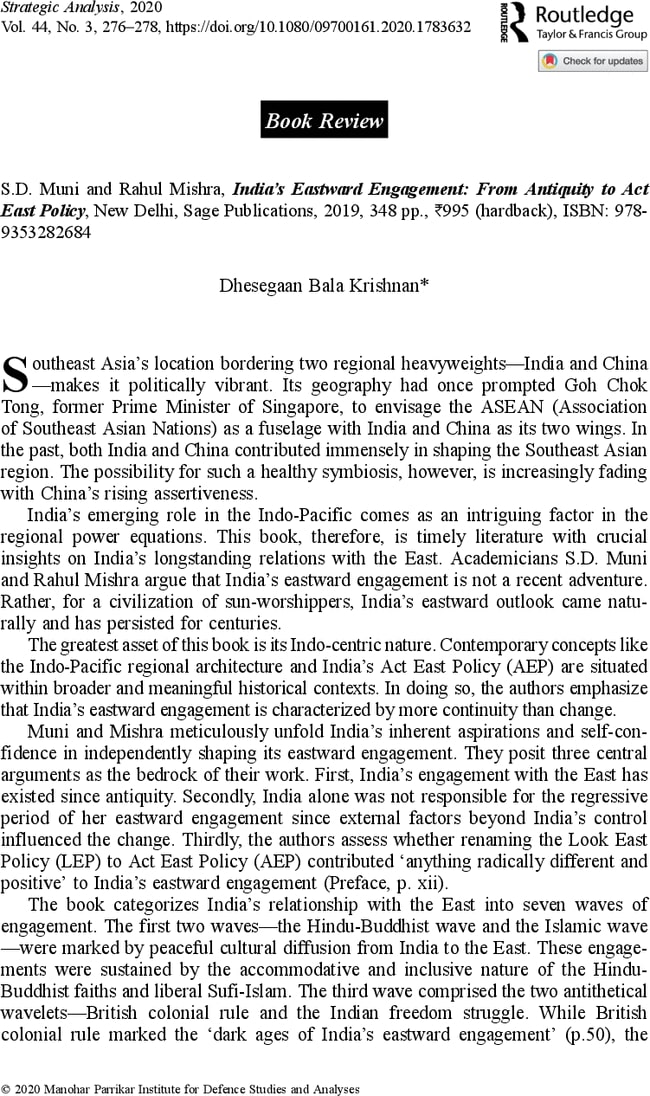Ladakh: India’s Gateway to Central Asia
Ladakh is one of the largest administrative units in India, in terms of its territory. Due to its contiguity with Xinjiang and Tibet and its close proximity to Central Asia, and enjoying a central position in the network of overland caravan routes that were linked to the Silk Route, Ladakh acted as an important gateway in the Indo-Central Asian exchange of men, materials and ideas through the ages.
- K. Warikoo
- May 2020 |
- Strategic Analysis
- |





